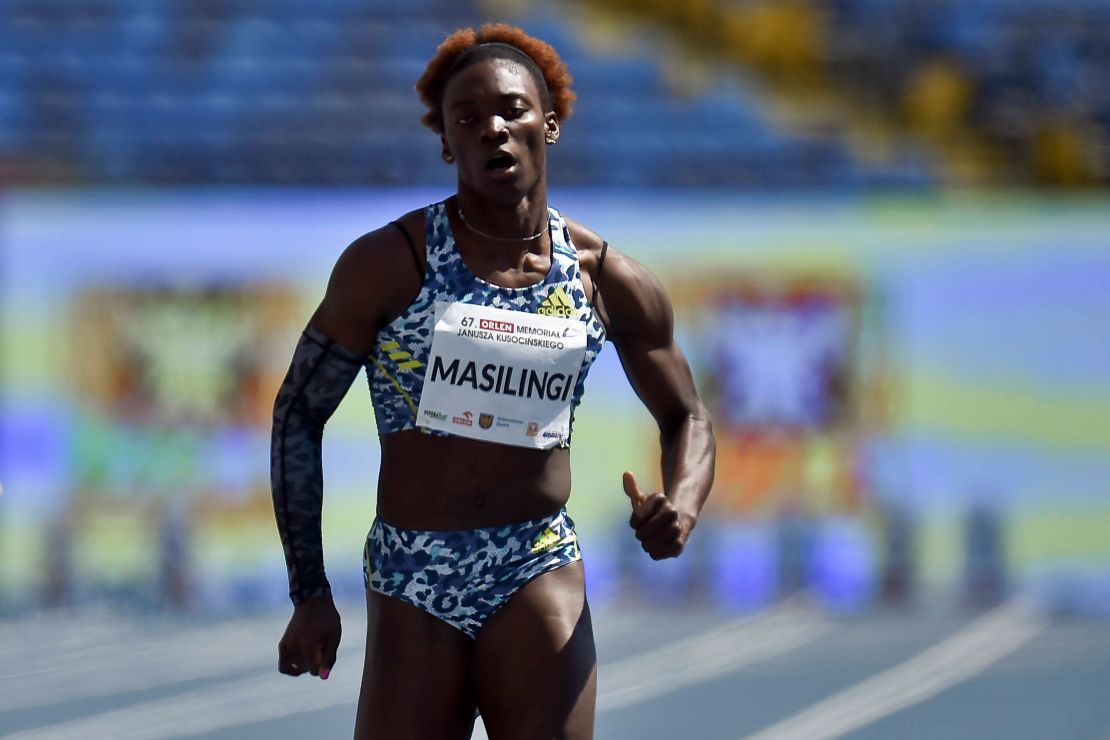Namibian sprinters Christine Mboma and Beatrice Masilingi have been ruled ineligible to compete in the women’s 400m at the Tokyo Olympics due to naturally high testosterone levels, the Namibia National Olympic Committee and Commonwealth Games Association (NNOC-CGA) said in a statement Friday.
Mboma and Masilingi have turned in four of the top five 400m times in the world this year, according to the World Athletics website.
The elevated testosterone levels were detected during medical assessments required by World Athletics.
The global governing body requires that female athletes’ blood testosterone levels be under 5 nmol/L (nanomoles per liter) to compete in select women’s events, including the 400m.
The two 18-year-old athletes were ruled ineligible because of World Athletics’ policy on Athletes with Differences of Sex Development (DSD).
World Athletics banned athletes who have elevated blood testosterone levels from competing in women’s races from 400m to one mile in distance in international competition when it introduced new DSD regulations in 2018.
In order to compete, those athletes must lower their testosterone levels with medication, which World Athletics says ensures fair competition.

READ: Asked about protesting if she reaches Olympic podium, Gwen Berry says, ‘We’ll see’
In 2019, the Court of Arbitration for Sport upheld World Athletics’ DSD rules when they were challenged by South African runner Caster Semenya. She lost a subsequent appeal and in February took her case to the European Court of Human Rights.
Mboma and Masilingi were tested in Italy, where they are training, according to the NNOC-CGA’s statement.
The committee said that neither of the 18-year-old athletes, nor their families, coaches or the Namibia National Olympic Committee were aware of their condition.
The committee said that Mboma and Masilingi will still be able to compete in 100m and 200m events.
The group also says it’s in close contact with World Athletics about paving a way forward for the two athletes.
“We will analyse all information and apply it in the best interest of those two young girls,” the statement reads.
“We are positive on their future as elite athletes.”
